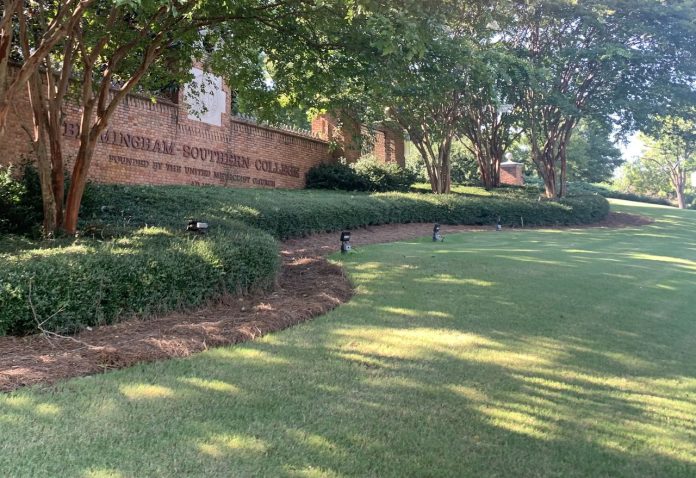This is a guest opinion column
As a 1982 graduate of Birmingham-Southern College, it pains me to see the financial condition it has fallen into that now threatens its viability as an institution. I count my four years on The Hilltop as some of the most formative and enjoyable years of my life. There, I learned much about myself and much about the world. One of the most significant things I learned there was that learning how to think for oneself is an essential component of being well-educated. So, despite my appreciation for my experience at BSC, it might surprise you to find I’m skeptical of the notion that public funds should be used to create some bridge to the future for my alma mater.
Make no mistake, I love the people and mission of Birmingham-Southern. I also believe there’s an incredible value in a liberal arts education for many of us. Yet I’m not convinced of the arguments I’ve heard suggesting the City of Birmingham and the State of Alabama should bail out the College. Part of my concern is because I have not heard answers to very important questions that ought to be asked about how the institution found itself in its current condition. Moreover, I have not heard how the College will prevent this from happening again. Regrettably, the College has suffered from financial volatility for many years. Finding its footing, only to falter again.
What I have found is that the College has operated at a deficit for roughly eight years. I’ve seen reports that it has lowered tuition during that time. And I have also seen the reports that the College’s financial controls were inadequate to allow it to properly report and account for Pell Grants in accordance with its responsibilities. Despite all these matters, both the Colleges faculty and have remained roughly flat over the past few years. Such circumstances lead me to ask such questions, especially as a former credit executive and bank CEO, as what comments were in the college’s audited financial statements and when did they appear? How did the Board of Trustees continue to approve budgets, which I assume they did, without acting long before circumstances became so dire? What specific steps, if any, did leadership take to increase revenue and decrease expenses over the last eight years? Finally, the College has co-mingled restricted endowment funds with unrestricted operating funds to keep it afloat.
To be clear, I am not suggesting any wrongdoing—other than perhaps a failure of leadership. Malfeasance and leadership malpractice are two different things. And while this might seem harsh, especially since I count several fellow classmates among the Board of Trustees, to accept the responsibility of leadership is to accept both accolade and difficult questions. Perhaps I should admit, as I always try to acknowledge my concerns, may well be the result of my not being fully informed. I’ve tried to find answers to my questions over the past several weeks, thinking any institution of Southern’s reputation would have offered a deliberate, explicit, if painful, disclosure of what has led it here today. If those answers are available and public, I offer my humblest apologies to my fellow alumni, the faculty, staff, and administration of the college, as well as the Board of Trustees. But if not, I challenge the share those answers considering their request for public support.
There is no doubt Birmingham-Southern is a vital contributor to Birmingham and our state. But such contributions do not grant it a right to exist in perpetuity. Private educational institutions, like private enterprise, must offer a value proposition that is attractive to both community stakeholders and students alike. But they must do so with an intense focus on financial stewardship. Regrettably, there are times when once significant educational institutions are no longer viable and must merge with other institutions Walker College, once a vital part of Jasper, Alabama, was absorbed by UAB. Decades ago, Gulf Park College, my mother’s alma mater, became part of the University of Southern Mississippi, while Judson College in Daphne, Alabama closed in 2021 after more than 180 years. There is no shame in such instances.
Words like tragedy and crisis are common place when people are advocating for a particular cause. Colleges and universities are subject to the same economic, social, and demographic forces as are businesses private and public. But they too must endure the consequences of an inability to overcome them. If they cannot, perhaps Birmingham-Southern can merge with another public institution like the University of Montevallo. While it would cause a great deal of heartache and consternation for Southern to disappear from the educational landscape, and indeed the College itself is enduring a crisis, we should not dilute the meaning of the word tragedy should happen.
Perhaps I will be persuaded that the public funding of my alma mater is warranted. Until then, I may face fellow alums urging me to give to the college. Some of them may look at me as something of a pariah for not supporting the current administration’s plan to keep the College afloat. Despite the possibility of such, I’m convinced that my mentors like the late Dr. Irvin Penfield, Dr. Natalie Davis, and so many others would at least applaud my willingness to ask difficult questions. Anything less would be to dishonor their profound positive influence in my life and a failure to apply the critical thinking skills they taught me.
For more information regarding the closure of educational institutions both public and private, go here.
Jim Owens is a retired bank executive founder of the consulting firm, Performance Strategies Group. He is an author, speaker, and living in North Alabama. He has a BA in Political Science (1982) from Birmingham-Southern College and an MA in Communications and Organizational Leadership from the University of Alabama (2021),




